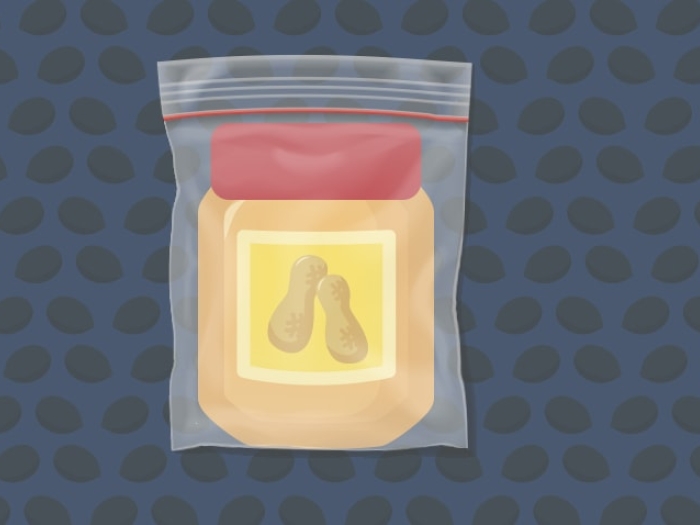Food allergy advocates and physicians explain the outrage surrounding the new major motion picture, and why it should matter to all parents.
1:00 PM
Author |

In certain online parent communities, everyone is buzzing about Peter, Flopsy, Mopsy and Cottontail, the characters in the new movie remake of Peter Rabbit.
MORE FROM MICHIGAN: Sign up for our weekly newsletter
The chatter isn't about the Looney Tunes-like high jinks, or how the movie compares to the beloved children's book.
Everyone's talking about the food allergy scene.
"There's a scene in the movie where Peter and his companions pummel their nemesis, gardener Tom McGregor, with blackberries — knowing full well Tom is allergic to blackberries," explains Christina Grech, M.D., a pediatrician with C.S. Mott Children's Hospital and a mother to a child with severe food allergies.
Tom survives, thanks to his EpiPen, but food allergy advocates immediately responded with outrage, saying the movie makes light of the seriousness of food allergies and the life-threatening reaction of the body to allergens, a condition known as anaphylactic shock.
The national research and advocacy initiative FARE issued a statement expressing disappointment in the lack of awareness, education and empathy on the part of Hollywood filmmakers.
"Playing an anaphylactic reaction for laughs, using a person's food allergy as a way to harm them, or having a character be the butt of jokes because they have a food allergy has no place in the movies, but is egregiously out of place in children's movies," say the statement's authors, including FARE CEO and Chief Medical Officer James R. Baker Jr., M.D., who is also the director of the Mary H. Weiser Food Allergy Center at Michigan Medicine.
It's true that Peter also pulls a number of exaggerated and violent tricks on Tom, and no one is railing against rake violence or electrocution — but there's a difference, explains Grech, who is a member of one of FARE's community engagement committees.
"As a general rule, kids aren't in a position to rewire electrical fixtures to teach the school bully a painful lesson, but school lunches and snacks are a much more accessible part of everyday school routines," she says.
The idea that a child could come away from watching a popular family movie thinking that food allergens are good material for pranks is a frightening prospect.Christina Grech, M.D.
A teachable moment
Concerned parents point out that the Peter Rabbit scene isn't an isolated occurrence.
"Food allergies are often depicted in movies and television in a way that can misrepresent food allergies as being less serious than they often are," Baker says.
SEE ALSO: 10 Great Children's Books for Talking About Surgery, Sickness and Feelings
Data backs up concerns that food allergy humor in media may have a damaging effect on the food allergy community in the real world.
One study analyzed 115 TV shows and movies referencing food allergies and found humorous depictions of allergic reactions accounted for more than half of all scenes evaluated.
Another study compared how college students who were shown comedy shows featuring severe food allergies reacted to proposed policies to keep school kids with food allergies safe to the reactions of those who weren't shown clips making light of food allergies. Participants who were shown the humorous allergy clips showed significantly lower support for policies such as restricting peanut butter in lunches and snacks, and restricting homemade foods from class events.
Defenders of the movie argue that parents shouldn't be offended, suggesting that the scene was certainly meant to be just another slapstick scene in a family comedy. Many parents of kids with food allergies, like Grech, aren't offended, though — they're scared.
"If you've watched your child go into anaphylactic shock, if you spend a portion of every day analyzing menus and ingredient labels to keep your child safe, the idea that a child could come away from watching a popular family movie with thinking that food allergens are good material for pranks is a frightening prospect."
Sony has issued an apology for the blackberry scene, and Grech points out that families can make the most of the situation by using it as a teachable moment.
"Talk to your child about food allergies and how an allergic reaction is truly a life-threatening situation," suggests Grech. "Talk about what makes some parts of the movie funny, but how a food allergy is different — it's real, and it could cost a life."

Explore a variety of healthcare news & stories by visiting the Health Lab home page for more articles.

Department of Communication at Michigan Medicine
Want top health & research news weekly? Sign up for Health Lab’s newsletters today!





